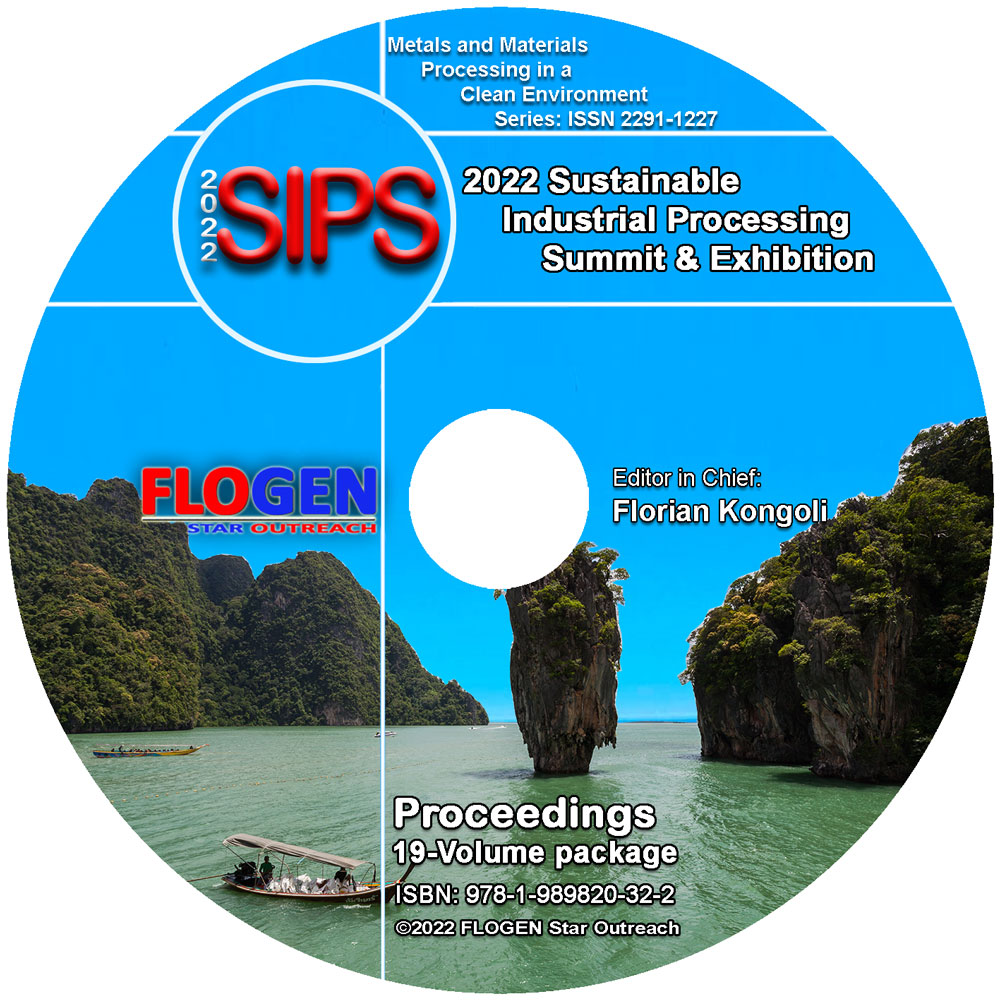2022-Sustainable Industrial Processing Summit
SIPS2022 Volume 18 Intl. Symp on Advanced Materials, Polymers, Composite, Nanomaterials, Nanotechnologies and Manufacturing
| Editors: | F. Kongoli, F. Marquis, N. Chikhradze, T. Prikhna, M. De Campos, S. Lewis, S. Miller, S. Thomas. |
| Publisher: | Flogen Star OUTREACH |
| Publication date: | 22 December 2022 |
| Pages: | 290 pages |
| ISBN: | 978-1-989820-68-1(CD) |
| ISSN: | 2291-1227 (Metals and Materials Processing in a Clean Environment Series) |

CD shopping page
AM Deposited Beta Titanium Alloys For Biomedical Applications
Jan Dzugan1; Sylwia Rzepa2; Matej Daniel3; Wei-Chin Huang4; Michal Sibr5; Libor Kraus1;1COMTES FHT INC., Dobrany, Czech Republic; 2COMTES FHT, Dobrany, Czech Republic; 3CTU PRAGUE, Prague, Czech Republic; 4ITRI, Hsinchu, Taiwan; 5PROSPON, Kladno, Czech Republic;
Type of Paper: Regular
Id Paper: 420
Topic: 48
Abstract:
AM deposition of components for the biomedical applications increases gradually its applications. There has been done a lot of work on AM deposition of Ti alloys such as commercially pure alloys Ti Gr.2, Ti Gr.4 and mainly Ti-6Al-4V alloy. However, there are some drawbacks such a slow strength values for both Ti Gr. 2 and 4 and relatively high elastic modulus for all mentioned Ti alloys (1-3). Moreover, Ti-6Al-4V exhibits potentially negative aspect related to alloying elements dissolution in the body and absorption by human organs. Therefore, other alloys are being There are currently certified two beta-titanium alloys for the biomedical applications: Ti-13Nb-13Zr (ASTM F1713) and Ti-12Mo-6Zr-2Fe (ASTM F1813), that are investigated in this work. These materials are in the presented study deposited by Laser Powder Bed Fusions process (LPBF) and by Directed energy Deposition system (DED). Microstructures investigations are accompanied by mechanical properties assessment in terms of quasi-static and cyclic test, that are presented here together with dynamic elastic modulus measurements. The elastic modulus values achieved here are significantly closer to behavior of human bone, than standardly used Ti 6Al-4V. Assessment of behavior for both consider alloys deposited by two AM deposition processes is performed based on the results achieved here and compared with previously obtained results for Ti 6Al-4V.
Keywords:
Metals; Ti-alloys, additive manufacturing, mechanical properties, LPBF, DEDReferences:
1. Dzugan, J et. Al.: Effects of thickness and orientation on the small scale fracture behaviour of additively manufactured Ti-6Al-4V, 2018, MATERIALS CHARACTERIZATION 143 , pp.94-1092. Pehlivan, E et. al: Effects of build orientation and sample geometry on the mechanical response of miniature CP-Ti Grade 2 strut samples manufactured by laser powder bed fusion, 2020, ADDITIVE MANUFACTURING 35
3. Stráský, J et.al.: Achieving high strength and low elastic modulus in interstitial biomedical Ti–Nb–Zr–O alloys through compositional optimization, 2022, Materials Science and Engineering A, 839, 142833.